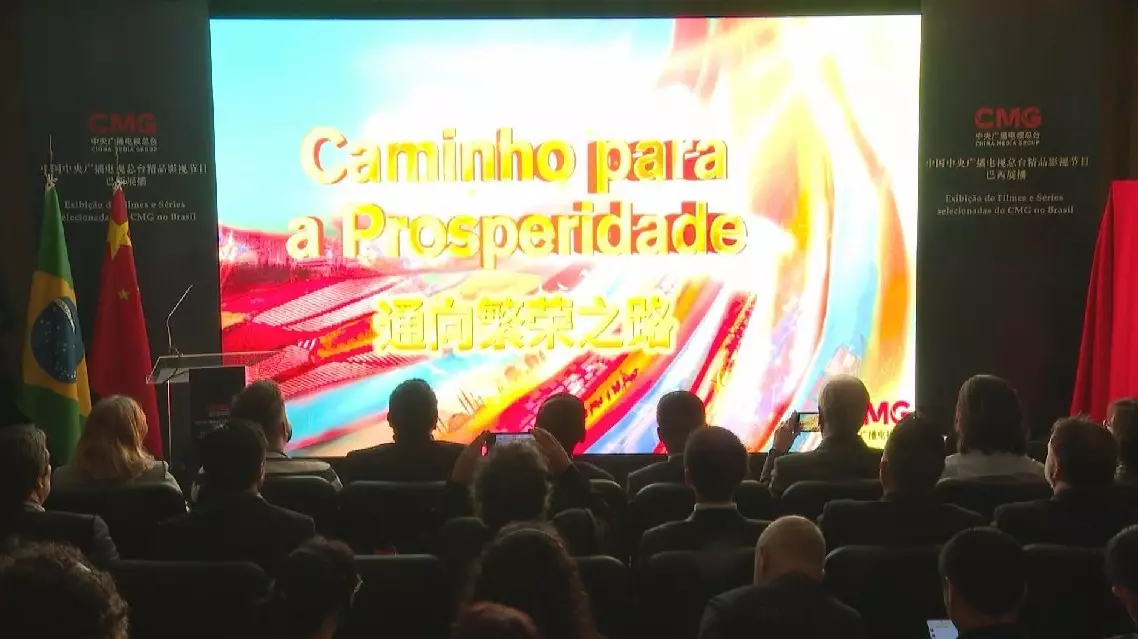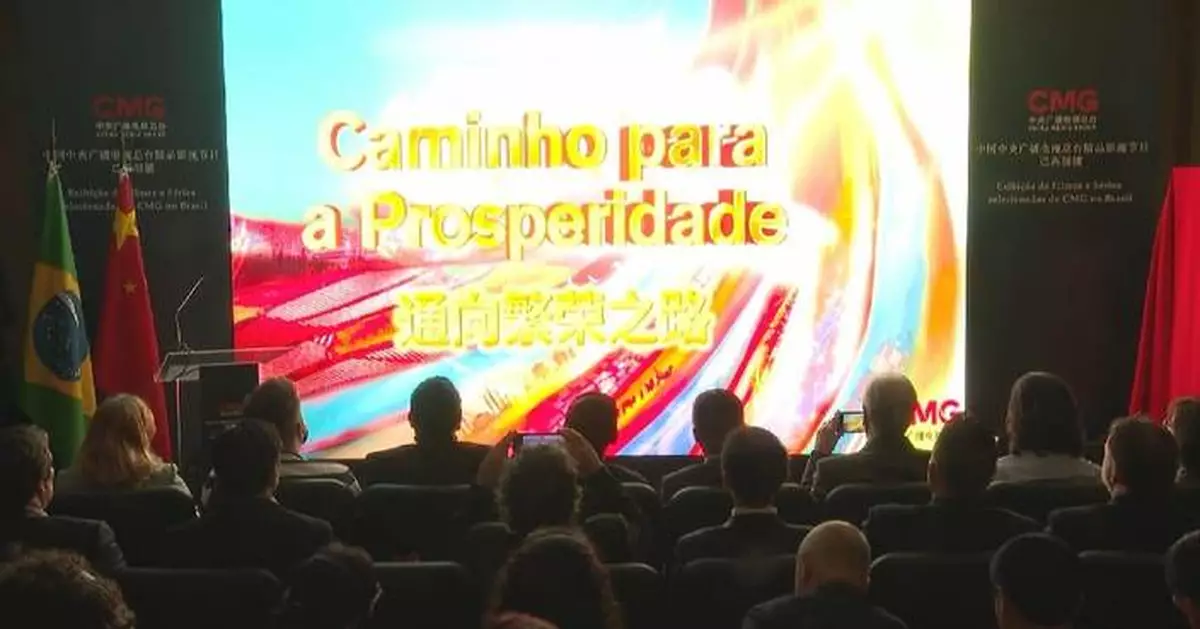China's state broadcaster China Media Group (CMG) recently launched exhibitions featuring its well-selected programs in Peru's Lima and Brazil's Sao Paulo, as a way to promote cultural exchanges ahead of Chinese President Xi Jinping's upcoming state visits to the two countries.
More than 20 of CMG's high-quality films and series, including "Encounters with Xi Jinping" and "A Road to Prosperity", will be broadcast on Peruvian and Brazilian media platforms.
People who have watched these CMG videos acclaimed the exhibitions' role in promoting cultural exchange.
"This documentary ('Encounters with Xi Jinping') is incredibly interesting for Peruvians. We believe that relations with China are very important for Peru. I think Xi Jinping's policies reflect many universal sentiments at this moment, as they represent a new approach to globalization -- a vision of a united world without blocs and with open policies. This is particularly relevant for trade but also extends to all forms of cultural exchange," said Dr. Hector Bejar Rivera, former Peruvian Foreign Minister.
"We have the Inca civilization, which is very similar to Chinese civilization in terms of its origins. The road to prosperity is through community, through working together. No one can develop in isolation during a crisis. New progress must be made through community cooperation. I think this is a message shared by both Chinese and Inca civilizations, and we are practicing this concept as well. I believe it is essential that, in China's approach to tackling poverty, they focus precisely on this -- the common good -- which is a fundamental principle of both Chinese and Inca civilizations. I believe that this is one of the most important messages being conveyed to the world," said Peruvian political analyst Jorge Perazzo.
"When I watch these shows and films, I find them very interesting. These Chinese historical dramas and movies make me want to visit these places -- these historic sites that belong to all of humanity. From the videos, I see a modern China, with a strong economy and modern architecture," said a Brazilian producer named Giovani Caldano.
"I hope that one day I can visit China, as these films make me want to learn more about it. These works I saw present an interesting culture, one that is completely different from ours in terms of language and culture. As the films show, communication is the foundation of everything. So I think that this exchange between the people of China and Brazil through films is very helpful. I believe it will be very beneficial for both sides, not just for Brazil," said Karyne Nóbrega, a Brazilian biomedical scientist.
President Xi will attend the 31st APEC Economic Leaders' Meeting in Lima and pay a state visit to Peru from Nov 13 to 17 at the invitation of President of the Republic of Peru Dina Ercilia Boluarte Zegarra. He will also attend the 19th G20 Summit in Rio de Janeiro and pay a state visit to Brazil from Nov 17 to 21 at the invitation of President of the Federative Republic of Brazil Luiz Inacio Lula da Silva.

Peruvians, Brazilians acclaim CMG programs as window to Chinese culture




















































